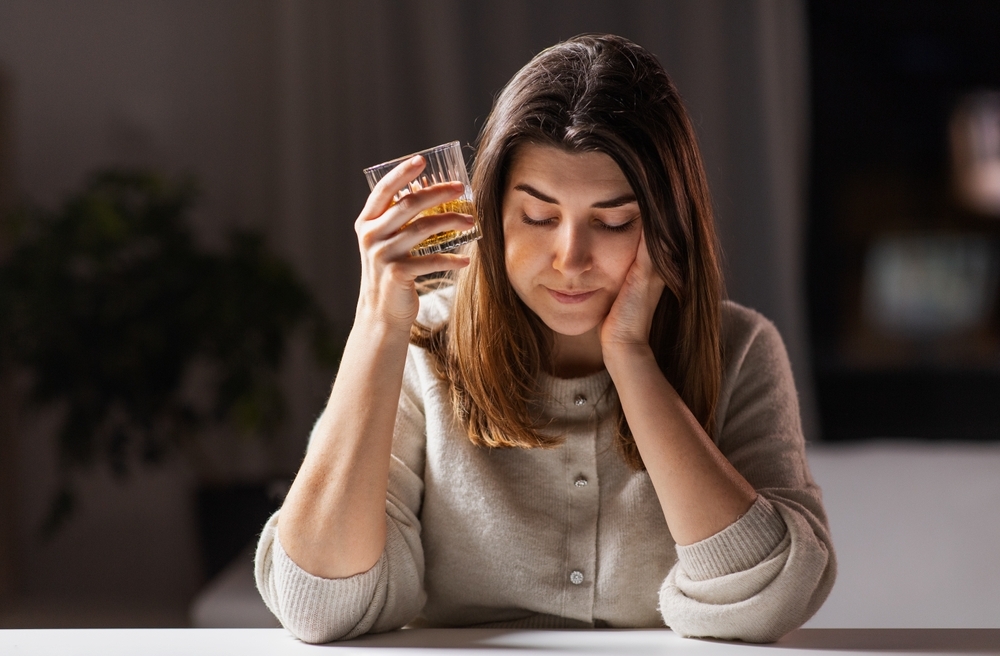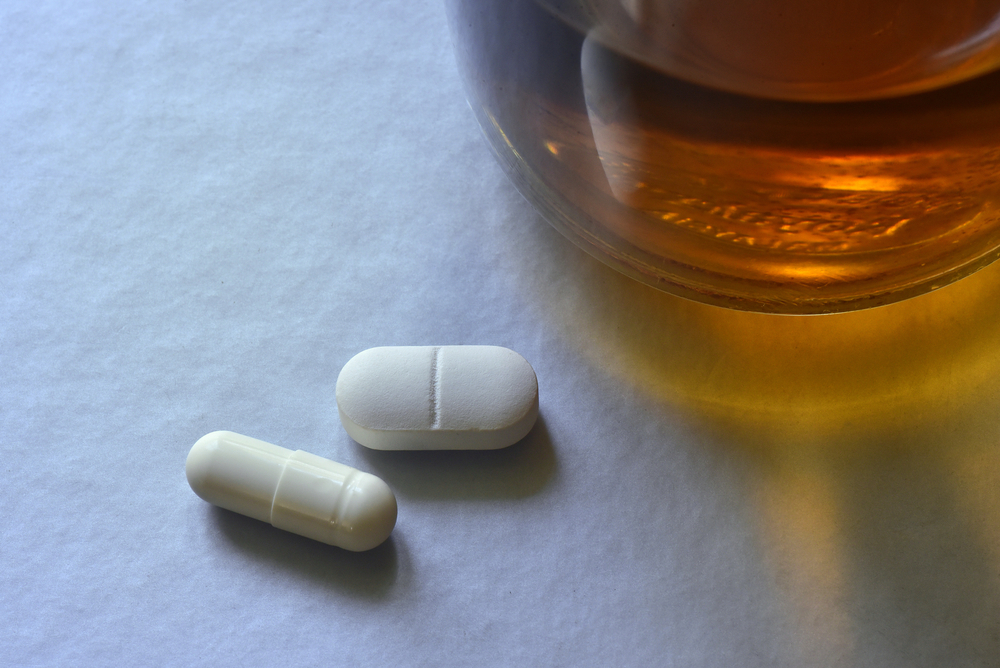Last Updated:
July 31st, 2025
Alcohol Addiction | Alcoholism Symptoms, Effects and Causes
What is classed as an alcohol addiction?
Understanding what counts as alcohol addiction can be challenging, especially in places where drinking is legal and a normal part of social life. Is someone who drinks a small glass of wine every evening an alcoholic? What about someone who binge drinks every Saturday but stays sober the rest of the week?
It’s not always clear where social drinking ends and problem drinking begins. However, certain patterns can suggest when alcohol use is becoming a problem or when it has already crossed the line into addiction.
Three different types of alcohol drinkers
What makes alcohol so addictive?
Many people know that alcohol is addictive but not everyone understands exactly why. It’s not just about drinking too much, it’s about how alcohol interacts with the brain and body, creating a cycle that can be hard to break.
Disrupting natural calming mechanisms
Alcohol also affects gamma-aminobutyric acid (GABA), a neurotransmitter that calms the nervous system. This is why drinking can reduce stress and help someone feel more at ease. However, frequent alcohol use causes the brain to produce less GABA on its own, leading to increased anxiety and restlessness when not drinking.
Building tolerance and physical dependence
With regular drinking, the body builds a tolerance, meaning more alcohol is needed to achieve the same effects. This can quickly lead to physical dependence, where the body expects alcohol to function normally. If someone stops drinking, withdrawal symptoms like shaking, sweating and severe anxiety can set in, making it difficult to quit without help.
Alcohol and the brain’s reward system
When someone drinks alcohol, it triggers the release of dopamine, a chemical that creates feelings of pleasure and relaxation. This rush of dopamine makes drinking feel enjoyable, encouraging the brain to seek that sensation again. Over time, the brain becomes dependent on alcohol for dopamine release, making it harder to feel good without drinking.
Struggling with an addiction? If you are ready to seek help, reach out to us today, and a member of our compassionate team will help you find the best option for starting your recovery journey.
The signs of alcohol addiction
It’s easy to assume that alcohol addiction is obvious, but addiction isn’t always clear-cut. Sometimes, the signs are hidden or dismissed as personalities, stress, or just “blowing off steam.” Recognising alcohol addiction involves looking beyond the surface, including physical, psychological and behavioural changes that may point to a deeper problem.
- Frequent hangovers: Regular hangovers suggest consistent heavy drinking.
- Shaking or tremors: Often linked to withdrawal when alcohol isn’t consumed.
- Weight changes: Alcohol can cause weight gain due to empty calories or weight loss from neglected nutrition.
- Flushed skin: Persistent redness, especially around the face, can indicate prolonged drinking.
- Fatigue and weakness: Alcohol disrupts sleep and depletes energy, leading to constant tiredness.
- Increased anxiety: Drinking can worsen anxiety when not consuming alcohol.
- Mood swings: Sudden emotional changes may occur, even without drinking.
- Depression: Alcohol can intensify depressive symptoms through its chemical effects on the brain.
- Obsessive thoughts about drinking: Thinking about alcohol regularly signals possible dependency.
- Memory loss or blackouts: Gaps in memory after drinking sessions can be a red flag.
- Secretive drinking: Hiding how much or how often they drink is common.
- Neglecting responsibilities: Missing work or skipping important commitments.
- Avoiding social events without alcohol: Preferring only alcohol-fueled gatherings.
- Financial problems: Spending money on alcohol instead of necessities.
- Relationship struggles: Conflicts with family and friends due to drinking habits.
Recognising these signs in yourself or someone close can be tough but could make a critical difference.
Do I have an alcohol addiction?
Even with all the information we’ve laid out, it can still be tough to consider the possibility of having an alcohol addiction or being on the path toward one. It’s a difficult thought to sit with, especially when drinking is so common and socially accepted. But checking in with yourself is never a bad idea.
Below are six questions designed to help you reflect. If you answer ‘yes‘ to any of them, consider reaching out for support.
- Do you drink more or for longer than you originally planned?
- Have you tried to cut down or stop drinking but couldn’t?
- Do you spend a lot of time thinking about drinking or recovering from it?
- Has drinking caused problems in your relationships, work or personal life?
- Do you feel irritable, anxious or shaky when you haven’t had a drink?
- Have you continued drinking even though it’s causing health issues or emotional distress?
Answering ‘yes’ doesn’t mean you’re beyond help; rather, it means you’ve taken the first courageous step toward understanding your relationship with alcohol. Support is available, and reaching out could change your life.
How Is an alcohol addiction treated?
Alcohol addiction can be treated through inpatient or outpatient programmes, depending on the severity of the addiction. For those with a severe dependency, inpatient treatment is highly recommended due to the need for medical supervision and a structured environment.
Treatment usually begins with a medically assisted detox to manage withdrawal symptoms safely. This is followed by therapy, such as cognitive-behavioural therapy (CBT), group counselling and individual sessions to address the root causes of addiction. Holistic therapies like mindfulness, yoga or art therapy may also be included. Aftercare support is often provided to help maintain long-term sobriety and prevent relapse.
Take the first step toward recovery
If you or someone you care about is struggling with alcohol addiction, reaching out for help could be life-changing. Remember, you don’t have to face this alone; support is available.
The right treatment makes recovery possible, and a healthier, happier life can begin. Take that first step today by speaking with professionals who understand what you’re going through and are ready to guide you toward lasting sobriety.
Our compassionate team are ready and available to take your call, and guide you towards lasting the lasting addiction recovery you deserve.
Frequently Asked Questions
(Click here to see works cited)
- Söderpalm B, Ericson M. Alcohol and the dopamine system. Int Rev Neurobiol. 2024;175:21-73. doi: 10.1016/bs.irn.2024.02.003. Epub 2024 Mar 13. PMID: 38555117.
- Davies M. The role of GABAA receptors in mediating the effects of alcohol in the central nervous system. J Psychiatry Neurosci. 2003 Jul;28(4):263-74. PMID: 12921221; PMCID: PMC165791.



